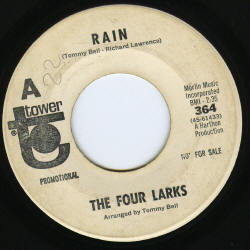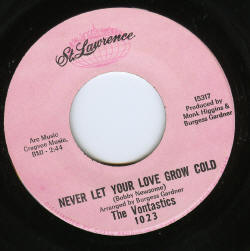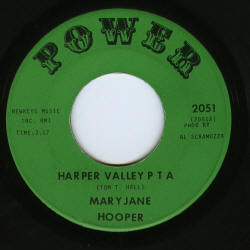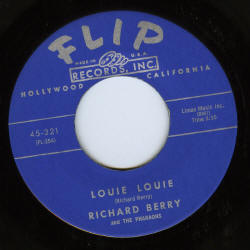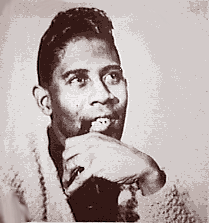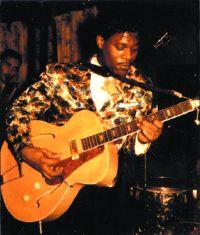
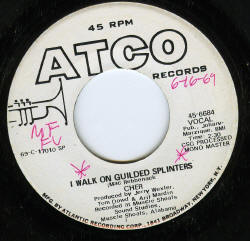
As a rule, with the exception of a few Sonny & Cher 45s, I try to make it my business to avoid all things Cher and Cher-related. In the last 30 years she’s come to represent the worst excesses of self-worshipping Hollywood celebrity, as well as making herself the poster child for Frankensteinian self mutilation.
This is not to say that she is without talent. She’s a fairly good actress (or was before her face looked like canvas tarp strapped over a lifeboat), and if not the best singer in the world, a proven hitmaker.
The “hitmaker” part is contentious because it seems as if she never made a great record that didn’t have someone else’s (Sonny Bono etc.) fingerprints all over it. Her relation to her best work is the same as a fine piece of gold that someone has fashioned into a dynamite bracelet. It’s a beautiful piece of jewelry, but if someone hadn’t been there to beat it into shape, it’d still be a rock.
From her beginnings as a bit of flotsam bobbing in Lake Phil Spector, then Sunset Strip proto-hippie icon, to lame Vegas showroom act, back to big-time TV star, to serial celebrity dater/mater (see Gregg Allman and Gene Simmons), back to Oscar winning actress, her career has been a schizophrenic rollercoaster, characterized by a herky-jerky dashes in and out of the spotlight (speeding ever so briefly through the land of quality…).
Taken in full it’s quite a spotty track record.
However, I come not to bury Cher, but to praise her…
Back in 1969, Jerry Wexler and Tom Dowd took Cher down to Muscle Shoals, Alabama to try and repeat the success (financial and artistic) that they found by juxtaposing the pop melodrama of Dusty Springfield with the soul of Memphis, Tennessee on the ‘Dusty In Memphis’ album.
To do something similar with Cher didn’t produce as sharp a contrast. While not a bonafide “rock” star, Cher had a little more street cred than Springfield (if not her voice). The palette they were giving her to work with was a little more rock oriented (Buffalo Springfield, Bob Dylan), some southern white-boy soul (stuff by Eddie Hinton, Dan Penn, Spooner Oldham and Chips Moman), and hit covers (‘Dock of the Bay’, ‘Cry Like A Baby’).
The resulting album, ‘3614 Jackson Highway’, with the cover photo of Cher, Wexler, Dowd and the Muscle Shoals house band The Swampers standing in front of the studio, is something of a lost classic. It represents a kind of high water mark for Cher’s musical credibility.
Though not a watershed – she would return to well crafted if not remarkable pop hits in short time – it is a perfect illustration of the success of the producer-as-auteur paradigm. That is to say, that left to her own devices, it is highly (if not completely) unlikely that Cher would have created something of equal interest and quality. However, with the guidance of old hands like Wexler and Dowd, picking the material, working the band and the boards, all in service of Cher’s raw talent, a very interesting album resulted.
Far and away the most satisfying moment on ‘3614 Jackson Highway’ is the inspired cover of Dr. John’s ‘I Walk On Gilded Splinters’.
Culled from the good Doctor’s 1967 debut LP ‘Gris Gris’, the original version of ‘I Walk On Gilded Splinters’ is a mélange of Nawlins voodoo and West Coast psychedelia that manages to be both trippy and genuinely spooky (and in a related note, recorded in LA during leftover Sonny & Cher studio time*).
Cher’s version gathers all of the elements of the original, tightens them up (squeezing out much of the menace) and adds a dose of funky soul. There’s lots of Hammond, a strong horn chart and solid drums. Cher gives an energetic reading of the lyrics, though they’re infinitely more sinister coming out of Mac Rebennack (for some reason the tune is credited to Rebennack’s alter-ego ‘Dr. John Creaux’).
The bottom line is, if you are Cher-phobic, this is definitely the record to look for. If your friends insist on playing that awful ‘If You Believe In Love’ song over and over again, treat them to a copy of this gem.
*Sonny and Cher’s musical director was New Orleans transplant Harold Battiste. Battiste worked at Imperial Records in LA and is largely responsible for some of Irma Thomas’s best work, and for luring other Crescent City heads – like Mac Rebennack and Alvin Robinson - out to the left coast.
